BLOGS
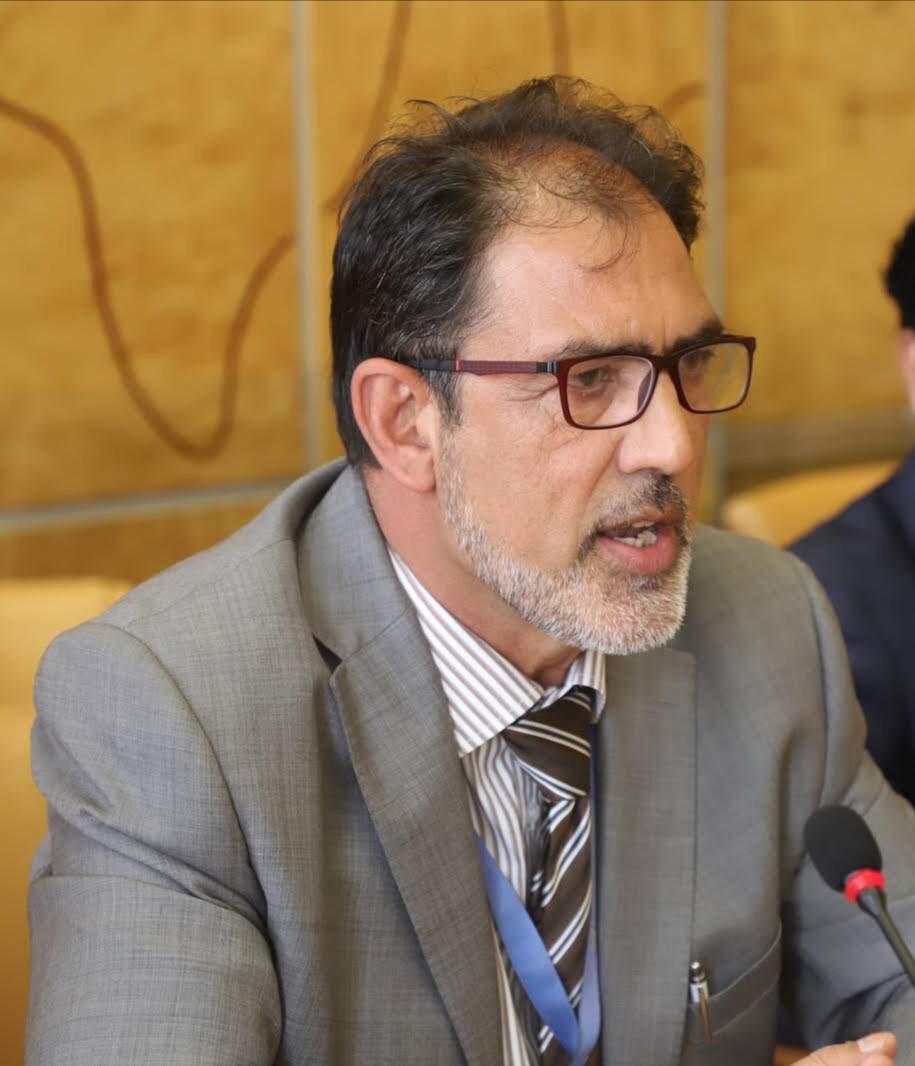
Nayeem Khan: A Brilliant Strategist of Resistance, Caged in Tihar
Khan, who heads Jammu Kashmir National Front, is now in his late fifties, carries a lifelong legacy of political struggle dating back to his student day. His story is not merely one of personal endurance, but of a deep-rooted commitment to the cause of his people, forged in the crucible of Kashmir’s turbulent history
More..
Shabir Shah: Kashmir’s Nelson Mandela
Holding talks at a crucial and sensitive time, he displayed both courage and commitment to exploring political avenues for resolving Kashmir’s conflict. To build support within Indian civil society, Shah met leaders across the political spectrum and engaged extensively with the intelligentsia. Yet, despite his long legacy of adopting dialogue as a preferred tool for settlement, he was branded a “rabid fanatic and a Pakistani agent.

Kashmir’s Carceral Colonisation: When prisons become weapon of war
By every metric that defines a modern democracy, the Indian state has failed Kashmir. But ‘failure’ is too soft a word. What we witness is a calculated, ideological project in which Hindutva has penetrated every pore of the state—military, police, executive, civil society, and, most tragically, the judiciary—turning Kashmir into the world’s largest prison complex, where surveillance, militarization, and collective punishment are deployed as weapons of war against an entire people.
More..
Kashmir Black Day 2025: India’s Denial of Humanitarian Access Deepens Crisis
More..
Kashmir Black Day 2025: A Story of Broken Promises and Renewed Struggle
More..
Kashmir Black Day: A Continuing Struggle for Rights and Dignity
More..
Kashmir Black Day 2025 Erasing Memory, Silencing Voices
More..
The Unheard Symphony: October 27, 1947, and the Silence That Followed
More..
The Day Freedom Was Caged
It was not until the 1972 Simla Agreement that India declared Kashmir a bilateral issue. It used brutal force against local resistance in 1990
More..
The Landing: A Black Day in Kashmir
More..
The Day Freedom Was Caged” October 27, 1947
More..
Echoes of Boots in the Valley of Saints: 27 October 1947
More..
When the Chinar Leaves Wept 27 October 1947
More..
The Books We Burn in Silence
More..
A Fish Between Two Crocodiles – How the BJP and Indian Army Turn Land into Power
More..
HE CAME BACK TO ME, BUT FOR HOW LONG?
More..
Ayaan: The Boy Who Carried a Family, and Became a Martyr
More..
Barbed to beauty: Tourism suffers Amid bolstered Amarnath Yatra
More..
A VOICE CAUGHT BETWEEN TRUTH AND TURMOIL
More..
Kashmir: Where heroes are mourned , not honored
More..
A Scholar’s Final Lesson
More..
From Conflict and Curfews in Occupied Kashmir to Topping India’s Medical Entrance Exam
In the rugged hills of Khari village, in Ramban district of Jammu and Kashmir, June 14, 2025, brought a rare moment of hope. Students across India checked their NEET UG results with tense hearts.
More..
A Tale of Disappearance and Loss in IIOJK
Every mother waits for her son to return; in Kashmir, some wait forever. In the troubled valleys of Indian Illegally Occupied Jammu and Kashmir (IIOJK), disappearances are not rare news they are a cruel, recurring reality.
More..
Silencing the Valley: India’s Demographic Coup in Occupied Kashmir
The next step was not simply legal or political, but a calculated and risky transformation one that was, in fact, meant to take away the powers of Kashmir as a Muslim majority state, to quash any form of opposition and in a systematic way, repeat the demography of the valley. It was not reform that took place. This was the regime of the cover-glass of constitutional words.
More..
Economic Promises, Ground Realities: The Kashmir Paradox
BJP had been actively trying to repeal this special status of Jammu and Kashmir since 1953. It was the prime manifesto of BJP’s 2019 election campaign. Subsequently, the motion was moved to the Parliament for its repeal when BJP secured landslide victory in the election.

AUGUST 5th 2019- THE START OF SETTLER COLONIALISM IN KASHMIR
Over 8,000 Kashmiris have gone missing. Above that 23,000 women have become widows and 2,000 are known as “half-widows. Otheer than this nearly 18,000 children have been orphaned. Shocking reports also state that about 2,600 women have been killed and over 12,000 have been assaulted by Indian soldiers.

The Constitutional and Colonial Implications of August 5 in Kashmir
More than 700,000 troops remain deployed, including paramilitaries and central forces. The Supreme Court, in December 2023, supported the abrogation but also ordered restoration of statehood and elections by September 2024 that orders that remain unfulfilled as of mid‑2025, suggesting continued democratic suspension.

Revoking Rights and Reigniting Resistance in Kashmir: A Constitutional Crisis
This silence, however, is not peace—it is suppression. And at the heart of this orchestrated quietude lies the Indian government’s unilateral decision to revoke Articles 370 and 35A on August 5, 2019.

Article On 5th August
Especially in Pakistan, this day is observe as a 'Youm-e-Istehsal-e-Kashmis' (Day of Exploitation).
More..
Kashmir Recolonized: The Settler Colonial Agenda Behind Article 370's Abrogation
After the abrogation of these constitutional clauses, Jammu and Kashmir lost its semi-autonomous status and was dismembered into two Union Territortories under direct administration, of Bharatiya Janata Party (BJP)-led government in New Delhi.
More..
Authoritarianism of Illegitimate;Exploitation in the shadow of integration
On August 5, 2019, the Indian government unilaterally abrogated Articles 35A and 370 of its constitution, which had historically underpinned the autonomous status of Jammu and Kashmir.
More..
Elected but powerless: Farce of democracy in Kashmir
Omar Abdullah’s barred entry to a historic graveyard on Martyrs’ Day reveals the illusion of autonomy and the deepening disenfranchisement of the Kashmiri people.
More..
Weaponizing Pahalgam Tragedy: India's Domestic and International Campaign Against Pakistan
The drums of war were beating in South Asia, with the recent conflagration between two nuclear powers, India and Pakistan. Following the Pahalgam attack, which took the lives of 27 tourists in the Indian Illegally Occupied Jammu and Kashmir, India started pointing fingers across the border, blaming Pakistan for the tragedy
More..
Trigger for war: India’s aggression against Pakistan
Despite being superior in territory, population, and economy, its military and security agencies are no comparison with Pakistan's. It is evident through a series of tactless and irrational attacks that India has proven its vulnerability in the face of Pakistan.
More..
Missed Opportunity: Nationalism, Kashmir, and Legacy of Conflict
It was the day Prime Minister Narendra Modi, a towering figure of both acclaim and controversy, stood at a crossroads.
More..
From Pahalgam to Provocation: India’s Escalation and Pakistan’s Response
India's recent actions against Pakistan mark a dangerous escalation in an already volatile region
More..
India’s Escalating Hostilities: Violations of International Law and Suppression in Kashmir
India’s aggression against Pakistan is neither new nor isolated. It is part of a long-standing pattern of hostility. From the illegal occupation of Kashmir to cross-border violations, India has consistently violated international norms and peace agreements
More..
Pakistan’s Strategic Response to India’s Provocations
On April 22, the India–Pakistan standoff following the Pahalgam attack unfolded like a high-stakes game of chess. Armed assailants ambushed a group of tourists in Baisaran, Pahalgam (Indian-occupied Kashmir), resulting in 26 fatalities; India promptly blamed Pakistan and vowed a strong response. Opposition figures in New Delhi were quick to note the political dimension
More..
Pahalgam and Politics of Convenient Tragedy
The official narrative was predictably swift: blame was assigned across the border, security forces sprang into delayed action, and political leaders offered standard condemnations.

Fueling the Fire: Indian Media & the Phalgham Crisis
The “Godi media” phenomenon isn’t simply about bias; it’s about a complete abdication of journalistic ethics. It represents a media system prioritizing access and favour with the ruling establishment over its fundamental duty to the public.
More..
Silent Killers: The Human and Ecological Cost of Landmines and Explosives in Kashmir
The verdant valleys and snow-capped peaks of Kashmir, often romanticized for their breathtaking beauty, conceal a grim reality beneath the surface: a landscape scarred by decades of conflict and littered with the silent menace of landmines and unexploded ordnance (UXO)
More..
Mirage of Peace in Kashmir
The killing of Junior Commissioned Officer (JCO) Kuldeep Chand in an attack in the Akhnoor sector and the subsequent military crackdowns exemplify the volatile environment in the region. Following the incident, Indian forces launched extensive cordon-and-search operations, deploying reinforcements and restricting civilian movement
More..
Kashmir’s Silent Agony of Disappearances
A recent investigative report by Al Jazeera, combined with harrowing testimonies from families and activists, has reignited long-standing accusations of systemic impunity and human rights abuses
More..
Erasing Resistance: India’s Legal and Demographic War on Kashmir’s Identity
Now the Waqf (Amendment) Bill 2025 is presented as a reform in the management of religious charitable endowments. However, beneath this legal façade, the bill functions as a tool of state control and dispossession.
More..
Coercion, Affidavits, and the Unraveling Myth of India Occupied Jammu Kashmir’s ‘Integration
Indian Home Minister Amit Shah’s assertion that “separatism (sentiment for freedom from Indian occupation ) has become history in Jammu & Kashmir” is not just an oversimplification—it is a calculated erasure of the region’s grim realities.
More..
The Perils of Impunity in Indian-occupied Kashmir:
In a poignant address to the United Nations General Assembly, the UN High Commissioner for Human Rights Volker Türk underscored the enduring agony of families awaiting answers about missing loved ones in conflict zones.
More..
Weaponizing Security: The Human Rights Crisis in Indian occupied Kashmir Under AFSPA and UAPA
Weaponizing Security: The Human Rights Crisis in Indian occupied Kashmir Under AFSPA and UAPA

Kashmir’s human rights struggle gains unexpected spotlight at UNHRC amid global conflicts
In a world besieged by large-scale conflicts—from Gaza to Ukraine, Syria to Sudan—the 58th Session of the United Nations Human Rights Council (HRC) underscored the fragility of international law in the face of geopolitical power plays
More..
The Silent Suffering of Kashmiri Women in IOJK
With the recent surge in militarization, they face rape, trauma, mental distress, and severe socio-economic oppression.
More..
From Srinagar to Gaza: The Silent War Against Native Populations
These projects prioritize the interests of non-Kashmiri investors and businesses, further alienating local residents. Construction of the satellite town along the environmental road drove out another 5,000 families in 2025.
More..
India's Violations of UN Resolutions and Global Inaction in IoK
The Jammu and Kashmir dispute continues to be among the longest-standing disputes on the agenda of the United Nations (UN).
More..
NC’s Familiar Flip-Flop: Omar Abdullah’s U-Turn on Kashmir
The political landscape of Jammu and Kashmir has long been a complex tapestry woven with history, identity, and the aspirations of its people.
More..
Kashmir’s Autonomy Stripped: Strategic Responses and Challenges for Pakistan
On 5th August 2019, the Bharatiya Janata Party (BJP), aligned with the ideological goals of the Rashtriya Swayamsevak Sangh (RSS), used its parliamentary majority to revoke Articles 370 and 35A of the Indian Constitution, which had granted Jammu and Kashmir (J&K) special autonomy.
More..
Pakistan’s Global Efforts for Kashmiri Self-Determination
Pakistan’s advocacy for Kashmir’s rights under Indian occupation is deeply rooted in its foreign policy and strategic calculations.
More..
The Silent Trauma: Psychological Impact of Conflict in Jammu & Kashmir
The trauma of disappearances, violence, and daily survival leaves lasting scars on mental health. Anxiety, depression, and PTSD are widespread, yet support remains scarce.

Justice Denied: Extrajudicial Killings & Enforced Disappearances in IoK
Extrajudicial killings and enforced disappearances are tools of state repression in conflict zones
More..
MAKING EVERY DAY KASHMIR DAY: A NATIONAL RESPONSIBILITY
For over seven decades, the people of Indian-occupied Jammu and Kashmir (IIOJK) have endured oppression under one of the most brutal and militarized regimes in modern history.
More..
Kashmir Solidarity day: A Struggle for Justice and Recognition
The world has progressed significantly since 1947. People today enjoy greater opportunities and a more comfortable life, while investors, traders and entrepreneurs thrive in a globalized free market.
More..
Reflection on Woes, Oppression and Authoritarianism
Since 1947, the people of Kashmir have been in a continuous struggle for their basic rights, emancipation, and right of self-determination. While this struggle accelerated, Indian government atrocities remained inhumane and equally obnoxious. Every year on the 5th of February, the people of Pakistan and related diaspora, celebrate Kashmir Solidarity Day to showcase the heinous act of the Indian government, on regional and international platforms.
More..
Kashmir Solidarity Day: A Call for Justice Amid India’s Non-Compliance
Every year, February 5th is marked as Kashmir Solidarity Day in Pakistan
More..
Kashmir Solidarity Day: A Stand for Justice and Freedom
Kashmir Solidarity Day, observed every February 5, highlights the plight of the people of Indian Illegally Occupied Jammu and Kashmir (IIOJK).
More..
Symbolism, Sentiment and Struggle for Self-determination
Every year on February 5th, Pakistan commemorates Kashmir Solidarity Day, reaffirming its firm support for the people of Jammu and Kashmir.
More..

Kashmir Solidarity Day: A Global Call for Justice and Peace
Every year on February 5, Pakistan and its people observe Kashmir Solidarity Day to honor the unyielding struggle of the Kashmiri people for freedom and self-determination.
More..
January 5: A Testament to Kashmir’s Unyielding Struggle for Self-Determination
For the people of Jammu & Kashmir, January 5 is a serious day of reflection and determination. It commemorates the anniversary of a significant United Nations resolution passed by the United Nations Commission on India and Pakistan (UNCIP) in 1949. It is known as Right to Self-Determination Day
More..
Kashmir’s Voice on January 5: A Pledge for Justice and Self-Determination
Every year on January 5th, the people of Jammu and Kashmir, along with millions of others throughout the world, come together to observe Right to Self-Determination Day—a day that echoes with the persistent call for justice, freedom, and the fulfillment of an decades-old promise
More..
Elections in J&K can’t resolve deeper structural and political grievances of people
While the recently concluded elections were described as free and fair, with significant participation, they must be analyzed within the broader historical and political context.
More..
Unravelling the Impact: The Seizure of Properties and land grab in Indian-Occupied Kashmir
The situation in Indian-occupied Kashmir (IOK) continues to evoke international concern, regarding the systematic human rights violations, perpetuated by occupational forces for the last 35 years, particularly for the last 5 years since the Indian government abrogated articles 370 and 35 A which gave Indian occupied Kashmir a certain degree of autonomy to safe the citizenship and land rights.
More..
Article: International Day for Elimination of Violence Against Women: A Focus on Indian occupied Kashmir
This day serves as a reminder of the persistent violence and discrimination that women endure globally. In Kashmir, the statistics paint a harrowing picture of systemic abuse and violations of human rights.
More..
Silence Must End: Justice and Accountability Need of Hour for Torture Victims
The alleged torture of civilians at an army camp in Kishtwar, in the Chenab Valley of Jammu and Kashmir, has sparked widespread condemnation across the political spectrum, with nearly every party – including the ruling
More..
Gen Syed Asim Munir’s vision for peace in SA and beyond
The Islamabad Policy Research Institute (IPRI) held its premier intellectual discourse, the Margalla Dialogue 2024, from November 13-15 , which brought together experts from different countries to discuss the theme "Emerging Global Realities:
More..
A Call to Action: Confronting the Global Climate Crisis with Equity and Innovation
As global temperatures rise, exacerbating climate-related catastrophes, the pressing question is no longer whether to act but how swiftly and effectively humanity can marshal resources and mobilize innovative solutions to avert potentially irreversible damage.
More..
JAMMU MASSACRE: A CHRONICLE OF NOVEMBER 6, 1947 AND A PERSISTENT QUEST FOR JUSTICE
Streets stained with blood, families torn apart, generations scarred by loss.
More..
November 6: A Day of Remembrance for the Victims of the Jammu Massacre
The horrors of the Jammu Massacre share a tragic parallel with Nazi atrocities during WWII, a time that saw concentration camps, gas chambers, and ethnic purges. The international community had vowed “never again” after the Holocaust and world leaders resolved to prevent future genocides. However, the people of Jammu saw little evidence of this resolve.
More..
1947 Jammu Massacre: A Forgotten Tragedy and the Call for Kashmiri Self-Determination
The Jammu Massacre of 1947 is one of the most harrowing yet overlooked chapters in the history of South Asia’s partition. Amid the turbulent backdrop of India’s independence and the formation of Pakistan, an estimated 20,000 to 70,000 Muslims were killed, and hundreds of thousands more were displaced from Jammu and Kashmir
More..
October 27th: A Day of Lost Rights and Unfulfilled Promises
Once, Kashmir was a land of stillness and beauty, where the mountains cradled the dreams of its people—a land where freedom was not just a hope but a way of life. But on a fateful morning of October 27, 1947, darkness descended upon this paradise
More..
October 27: Beginning of Kashmir’s Dark Era
Imagine you are living in a land where your fundamental rights are denied, where military occupation defines every aspect of your existence, and where your voice is silenced in deciding your own future. This is the harsh reality faced by the people of Jammu and Kashmir
More..
A Day of Mourning: Remembering Kashmir’s Lost Freedom
October 27, 1947, is a day etched in the collective memory of Kashmiris as Black Day, marking the beginning of a decades-long conflict and struggle for self-determination.
More..
Black Day: Kashmir's Fight for Self-Determination
October 27, known as Black Day, is not just a day of mourning for the decades of injustice and oppression faced by the people of Kashmir, but also a symbol of their ongoing struggle for the right to self-determination

Kashmir’s Bleeding Wound: Remembering October27, 1947
October 27th, widely observed as "Black Day," marks a significant and painful chapter in the history of Indian occupied Jammu & Kashmir.

Kashmir Black Day: The symbol of unfilled promises and the struggle for justice
27th October 1947 stands as a day of sorrow and resistance for the people of Kashmir.

27th October: A Black Day in Kashmiri History
In the words of Gandhi, “I object to violence because when it appears to do good, the good is only temporary; the evil it does is permanent

Reassessing October 27th: A Call for Justice on Kashmir’s Black Day
October 27 is marked as “Black Day” by the people of Kashmir, a day that signifies the beginning of a long and painful chapter in their history. In 1947, Indian occupation forces landed in Srinagar, claiming to secure the territory after the signing of the controversial Instrument hof Accession by Maharaja Hari Sing

Is Freedom Merely an Illusion? Analyzing the Impact of India’s Colonial Legacy on Kashmir Since October 27, 1947
October 27, 1947, marks as one of the most detrimental moment in the history of Kashmir conflict. On this day, the Indian military forces intruded the princely state of Jammu and Kashmir, sparking the onset of one of the world’s longest-standing conflicts.

Black Day of Kashmir: A Reflection on a Wounded History and a Striving Future
On October 27, 1947, the world witnessed the beginning of a conflict that would not only shape the destiny of Kashmir but also reverberate through the subcontinent for decades.

India Wants Kashmir, Not Kashmiris: 27th October - The Black Day
What does it mean when a land is claimed, yet its people remain voiceless?

October 27: A Call for Justice and Recognition in Kashmir’s Ongoing Struggle
October 27 holds deep significance for the people of Kashmir, symbolizing decades of suffering and struggle. On this day in 1947, Indian military forces entered Kashmir, a move viewed by many Kashmiris as the beginning of their long-standing oppression

27 October 1947; The dawn of struggle for the people of Kashmir
Every year, October 27 is a sad reminder of the long and unsettled conflict in Kashmir. It is a date for the residents of this disputed land, marking the anniversary of what they perceive as an occupation occurrence still influencing their current reality.

October 27, 1947: A legacy of betrayal, Occupation, and the denied quest for of Self-Determination in Kashmir.
October 27, 1947, is one of the anguish days in Kashmir's history. On this day, Indian troops landed in Srinagar, prefacing an occupation that has lasted more than 76 years

Echoes of suffering: Human Rights Violations in the wake of black day
Time is the greatest witness of Kashmir’s transition from the prettiest valley to the bloodiest battlefield.

The Untold Pain of Kashmir: Revisiting October 1947
October 1947 is a dark chapter in the history of Indian-occupied Jammu and Kashmir
More..

Kashmir Black Day A Reflection on 27th October 1947
This date signifies the beginning of a prolonged struggle against illegal occupation by Indian forces

KERALA STORY The Truth Behind BJP S CINEMA
Imagine a country where there are people of different ethnicities and faiths, living together and trying to live a peaceful life, then you see their soft media releasing films that can harm a certain group of people that have a different faith from the majority, and those films can also ignite and help make a presumption about that specific faith believers, and to make the situation much worse, the government of that country starts to support the filmmakers of those films.

The Facade of Democracy: Reality of Elections in Indian-Occupied Jammu and Kashmir (IIOJK)
Since the transmogrification of India illegally occupied Kashmir from statehood to Union territories of Jammu-Kashmir and Ladakh, the IIOK is set to undergo general elections after 10 years.

The Inalienable Right to Self-Determination in Jammu and Kashmir
The solution to the Kashmir conflict lies not in the mechanics of electoral politics but in a genuine political process that respects the rights and aspirations of the Kashmiri people

Legal Implications of the Abrogation of Article 370 and 35A: A Review of Court Cases and Judgments
This article reviews the legal implications of this abrogation, examining the historical context, key court cases, and judgments, and the broader impact on the region and India’s federal structure. Historical Context.

Kashmir’s Security Quagmire; Post 5th August 2019
The unprecedented lockdown and communication blackout initiated a new and turbulent chapter for the people of Jammu and Kashmir, as the BJP-led Indian government announced the abrogation of Articles 370 and 35A. This decision, aimed to integrate the region with India, instead sparked multiple events and actions that worsened the security landscape of J&K.

Kashmir’s Unseen Battle: The Aftermath of Article 370 Abrogation
It has been five years since the abrogation of Article 370 by India on 5th Aug 2019. This abrogation led to the denial of those rights mentioned by Eleanor Roosevelt, and the amalgamation of Kashmir valley into Indian territory.

IIOJK’S MENTAL HEALTH CRISIS - POST ARTICLE 370 ABROGATION
These harsh actions have had deep and lasting psychological effects on the people of Jammu and Kashmir, adding to an already tense and traumatic situation.

Screenplay of Deceit; Unmasking Media and Bollywood’s Role in the distorting the narrative of Article 370
In an era where borders blur and information flows unceasingly, media has emerged as a formidable force shaping our reality. Its pervasive influence extends far beyond entertainment, crafting the narratives that mold our political landscapes.

India Faces Scrutiny Of Human Rights Situation At Geneva
Human rights groups have consistently demanded scrutiny of India’s human rights record and accountability for government officials using anti-terror laws to suppress dissent and silence dissenters in Jammu & Kashmir

Youm-e-Takbeer: Nuclear Deterrence and Kashmir Conflict
India’s involvement in the Fall of Dacca and exploding its first nuclear device prompted Pakistan to develop its nuclear capability. As a result, Pakistan conducted its nuclear tests on May 28, 1998, and became a nuclear-armed country.

Indian Elections: Implications for Regional Stability
India's aspiration to assume a leadership role in the region depends on its ability to address domestic challenges, strengthen relationships with neighbouring countries, and resolve the longstanding issues of Jammu and Kashmir

Lok Sabha Elections: What Lies Ahead for Kashmir
The region is at a crossroads and the upcoming elections provide a glimpse into the future of Kashmir, which is teetering between continued conflict and the possibility of a new, more inclusive political chapter. In the shadow of protracted claims of normalcy and after more than six years of waiting, the Indian government has yet to initiate a meaningful political process in Kashmir

India's political landscape and BJP's campaign tactics
The current political climate is characterized by increasing polarisation, signaling a move away from established democratic practices towards a more centralized and potentially authoritarian style of governance.

Kashmiri rights activist: Vilified at home yet honored by the world
To the utter shock and dismay of the Indian government, which is increasingly allergic to the mention of anything about Kashmir, the Kashmiris, for all the right reasons, continue to hit the headlines at the world level despite facing restrictions at home

Impact of protracted conflict on Kashmiri women
The continued conflict and turmoil in the Indian illegally occupied territory of Jammu and Kashmir have had a devastating impact on almost every aspect of life.

Pakistan an uncompromising friend & sympathizer of Kashmir
Pakistan’s consistent and continued support of the Kashmiris’ legitimate cause has always been a source of great strength and encouragement to the people of the Indian-occupied Jammu and Kashmir.

Modi’s Srinagar Visit: A Hollow Spectacle?
Prime Minister Narendra Modi’s recent visit to Srinagar, culminating in a big rally at the Bakshi Stadium, demands scrutiny beyond the extravagance of the occasion.

Behind the scenes of the G20 meeting in Kashmir
As the date for G20’s working group meeting scheduled in Srinagar draws nearer, security in the Kashmir valley has been further beefed up

Article 370 Judgement: Another Step In The Wrong Direction
A five-judge bench of the Indian Supreme Court, headed by Chief Justice D Y Chandrachud, has finally delivered the much-awaited judgement after hearing a series of petitions challenging the government’s power to abrogate Article 370 of the Indian Constitution

End Culture Of Impunity: Only Way To End Extrajudicial Killings
he cold-blooded killing of three civilians by men in uniform in Poonch district last month highlights the grim reality that while the world around Jammu and Kashmir may have changed, little has changed for the local population.

Human Rights: Accountability Mechanisms Need To Be Strengthened
A Kashmiri child peeps out of a window. Source: Kashmir Global, Creative Commons Recently the UN Secretary-General resorted to the rare diplomatic tool, Article 99 of the UN Charter

Scourge Of Sexual Violence In Conflicts: A Kashmiri Dilemma
The unrest and the events that unfolded in Jammu and Kashmir over the past 35 years have left indelible scars on the population, with Kashmiri women in particular suffering disproportionately. Violence, displacement, and constant grief have severely affected their physical, mental, and emotional well-being. Among the multiple forms of abuse they face, sexual violence stands out as a particularly egregious assault, leaving a legacy of suffering embodied by rape survivors.

Illusion Of Normality: Unmasking Reality In Jammu And Kashmir
Over the past seven decades, the authorities in Jammu and Kashmir have long hidden their actions under the guise of “development and normalcy”, ignoring the harsh realities on the ground.

International Women's Day in the Shadow of Conflict in Kashmir
On March 8th, International Women's Day, the global community comes together to recognize the achievements of women and advocate for gender equality. In 2024, the United Nations theme, "Invest in women: Accelerate progress," underscores the necessity of empowering women worldwide

Kashmir Day and the Coincidence of Pakistan’s General Elections
Kashmir Day, also known as Solidarity Day with Kashmiris, is held annually on February 5th, and is a significant event in Pakistan's geopolitical calendar.

KASHMIR SOLIDARITY DAY: TRIBUTE TO FREEDOM STRUGGLE OF KASHMIRIS
This year, on February 5, the world will once again experience the unyielding courage and perseverance of over 9 million Kashmiris fighting for their undeniable right to self-determination and freedom.

Sowing Seeds of Change: Kashmir's Path to Peace, Unity and Prosperity
As February 5th draws near, the significance of Kashmir Solidarity Day becomes increasingly poignant. This day is not merely a date on the calendar; it symbolizes an effort to being change and innovation that resonates globally

Kashmir Solidarity Day: A Call for International Recognition and Action
Kashmir Solidarity Day, observed on the 5th of February every year, holds great significance for Pakistan.

YOUTH INITIATIVES RESONATING FOR KASHMIR SOLIDARITY
Kashmir Solidarity Day observed on February 5th, holds immense significance in raising global awareness about the ongoing plight of the Kashmiri people

Kashmir Solidarity Day: A Call for Youth Action
Kashmir Solidarity Day, observed on February 5 by Pakistan and Kashmiris worldwide, is a national holiday signifying solidarity and support for the people of Indian Illegally Occupied Jammu and Kashmir (IIOJK), who have been fighting for their right to self-determination for over 70 years

5 Feb Kashmir Solidarity Day: Call for Strengthening Pakistan's Kashmir Policy
Kashmir Solidarity Day is observed every year on 5 February in Pakistan to support the freedom struggle of Kashmiris in Indian Illegally occupied Kashmir. Kashmir Solidarity Day was observed in 1990,

Amplifying the Voices of Half-Widows
February 5th - Kashmir Solidarity Day - serves as an annual reminder of the prolonged conflict in Indian illegally occupied Jammu & Kashmir, where the struggle for self-determination has left an indelible mark on the lives of its residents.

Kashmir Solidarity Day in the Shadow of Abrogation
On February 5, Kashmir Solidarity Day is observed to honor Kashmiri martyrs and express solidarity with freedom fighters who persist in their struggle, demanding their legitimate right to self-determination, as recognized by UNSC resolutions.
More..
Kashmir Solidarity Day A Chronicle of Resilience and Struggle for Freedom Solidarity Day
Kashmir Solidarity Day observed on February 5 every year, serves as a poignant reminder of the sufferings endured by the Kashmiri people in their quest for independence.

Empowered Voices: Kashmiri Women Pioneering Resistance and Resilience in IIOJK
The resistance movement within Indian Illegally Occupied Jammu and Kashmir (IIOJK) has been significantly and diversely influenced by Kashmiri women.

UAPA'S GRIP ON KASHMIR: SILENCING JOURNALISTS & ACTIVISTS
Jammu and Kashmir has witnessed a disturbing trend where the government employs counterterrorism laws to stifle dissent and silence critics, with the Unlawful Activities Prevention Act (UAPA) at the forefront of this crackdown. The legislation has become a weapon against journalists, human rights defenders, and activists. One prominent case illustrating the misuse of UAPA is that of Khurram Parvez, a Kashmiri human rights activist arrested under the act in November 2021.

STAGED ENCOUNTERS IN J&K SYSTEMIC IMPUNITY FOR INDIAN OCCUPATION FORCES
The recent grant of bail on 13 Nov 23 by the Armed Forces Tribunal (AFT) to an army over convicted of killing three men in a staged encounter in Amshipora, Shopian, in July 2020, once again highlights the deep-seated issues surrounding procedural fairness in cases of human rights violations by Indian occupation forces in Kashmir.

PM Kakar's Strategic Discourse on Kashmir, Defense and Global Affairs
Caretaker Prime Minister Anwar ul Haq Kakar's recent address during his two-day visit to Muzaffarabad, AJK on December 14 to 15, encapsulates and illuminates Pakistan's strategic considerations within the international legal framework, its regional posture, global humanitarian concerns, and the delicate balance between repatriation and the diaspora's potential as an asset.

UDHR at 75: Will Kashmir See a Dawn of Human Rights?
As the world commemorates the 75th anniversary of UDHR, the plight of innocent people of Indian Illegally Occupied Jammu and Kashmir (IIOJK) remains a glaring stain on the conscience of humanity. Amidst the backdrop of worldwide apathy, the people of Kashmir find themselves voiceless and forgotten

International Human Rights Day: Kashmir, Palestine and Dilemma of UDHR Frameworks
The Universal Declaration of Human Rights (UDHR) is a fundamental human rights document endorsed by the United Nations General Assembly in 1948. It serves as a guide for states to protect people's rights and promote equality in the global community

Kashmir Conflict: An inextricable link between human rights violations and genocide
uan E. Mendez, a former UN special adviser on the Prevention of Genocide argues that addressing human rights violations and preventing their escalation is crucial in stopping the slide towards genocide. Hannah Arendt in her book 'The Origins of Totalitarianism' explores how the abrasion of human rights and the denial of basic freedoms can create a ground for the rise of totalitarian regimes

NAVIGATING HUMAN RIGHTS IN KASHMIR ON THE 75TH ANNIVERSARY OF UDHR
The journey from the adoption of the UDHR in 1948 to the present day has witnessed remarkable progress in articulating and defending human rights. However, evolving global affairs brings forth new challenges that demand a renewed commitment to these fundamental principles

Kashmir Conflict: Upholding Human Rights and Self-Determination on the 75th Anniversary of the UNDHR
Every year on 10 December, the world celebrates Human Rights Day, the very day when, in 1948, the United Nations General Assembly adopted the Universal Declaration of Human Rights (UDHR) and the 75th anniversary of the Universal Declaration of Human Rights will be celebrated on 10 December 2023

Border Dispute & the triangular conflict between China, India, Pakistan
The Kashmir conflict has grown from a bilateral issue to a danger to the security and stability of the South Asian region, with deep roots spanning 75 years, a series of evolutions, and the development of nuclear weapons by both adversary governments

RECALLING THE NOVEMBER 6TH 1947
Over 200,000 Muslims lost their lives while attempting to migrate to Pakistan. Many more were forced to leave their homes. While some Muslims displayed great bravery in the face of adversity, in most areas, the violence against them was overwhelmingly one-sided .

Jammu Massacre: A sordid saga of painful memories, terror & trauma
2.3 lakh Muslims were exterminated inside Jammu under a systematic campaign of ethnic cleansing.

India’s Settler Colonialism in Kashmir
The people of Kashmir, who have been subjected to an oppressive military occupation by India since 1947, and Pakistanis observe October 27 as black day.

Kashmir's Struggle for Self-Determination: Remembering October 27th
In the history of Kashmir, October 27th is observed as Black Day. On this day in 1947, India invaded Jammu and Kashmir without regard for the Indian Independence Act, the UN Charter, and, most importantly, the wishes of the Kashmiri people.

The Instrument of Accession: A Contested History"
Shortly after the accession, tribal forces, allegedly backed by India, invaded Kashmir, sparking a fierce conflict. This marked the beginning of a struggle that has endured for over seven decades.

Decoding Economic Depression in IOJK Post 2019: Causes, Consequences and Prospective Remedies
More..
THE PSYCHOLOGICAL IMPACT OF FORCED DISAPPEARIENCES ON KASHMIRI FAMILIES
The people of Kashmir have sacrificed their loved ones in their struggle for freedom over the past 76 years.

Kashmir’s quest for Independence, 27th October Perspective
Human rights violations range from torture to forced displacements, sexual violence, extermination, enforced disappearances, detentions, freedom of expression, and mobility.

27 Oct-In the history of Kashmir
On this date in 1947, India invaded Jammu and Kashmir against the will of the local populace, completely disregarding the Indian Independence Act and the UN Charter.

The Plight of Kashmir: From 1947 to the Present
Kashmir is neither a territorial nor a bilateral dispute between India and Pakistan. Actually, it is an issue of self-determination of the people of Kashmir recognized by the United Nations Security Council Resolutions.

27 OCT Black Day; Indian Unilateral Decisions to wreck Political, Religious and Cultural Heritage Of Kashmiris
October 27th is marked as a Black Day in history when Indian forces forcefully took control of Kashmir by militarily invading it against the wishes of the Kashmiris. Since it's a Muslim-majority state, its choice should be deemed crucial in deciding whether to join India or Pakistan, as per the partition plan.

Kashmir's Self-Determination Struggle: A Chronicle of Resilience
More..
BLACK DAY OF KASHMIR
More..
Unplugging Kashmir files
More..
The Kashmir Conflict International Diplomacy's Blind Spot
More..
India’s Consistent Efforts to Weaponize Tourism in Jammu and Kashmir and Normalizing Foreign Investment in IIOJK
More..
FROM BULLETS TO CARBON FOOTPRINTS THE ECOLOGICAL CONSEQUENCES OF THE KASHMIR DISPUTE
More..
Navigating the Dual Challenge of Neelum Valley Conflict and Environment
More..
The Perils of Hate Islamophobia in India and Beyond
More..
BJP Junta’s control over Indian Media
More..
PSYCHOLOGICAL IMPACT OF ENFORCED DISAPPEARANCES OF KASHMIRI FAMILIES
More..
Militarization and Its impact on Glaciers in Jammu Kashmir
More..
A Threat of Nuclear Mushroom Looms Over South Asia Casting a Dark Shadow
More..
The Tragic Denial of Burial Rites in Indian-Occupied Kashmir
More..
WOMEN AS AN AGENT OF PEACE IN KASHMIR CONFLICT
More..
BATTLE OF PATIENCE AND RIGHTS: TORTURE CONTINUES IN THE KASHMIR VALLEY UNDER “UNLAWFUL” DRACONIAN LAWS (PSA, AFSPA, UAPA)
More..
Silenced Voices: India’s War on Words in IIOJK
More..
Four Year of annexation impacts of Kashmir and Kashmiris
More..
Social Media Censorship a Bluff Game in IIOJK
More..
The Environmental Impact of Militarization in Indian Occupied Jammu & Kashmir
More..

The G20 TWG Meeting in Kashmir The Camouflage of Oppression by the Normalcy Mantra
More..
Deciphering Pakistan's Foreign Policy Through Army Chief's Speech
More..
Comparing Diplomatic Behavior SCO Meeting Goa vs Trilateral Meeting Islamabad
More..
Climate Change and Food Security in South Asia: Challenges and Solutions
More..
Revival of Village Defense Committees in Indian Occupied Jammu & Kashmir
More..
Extra-Judicial Executions: India’s Dirtiest Warfare Tactics in Indian Administered Jammu and Kashmir
More..
Indian; Colonizing Education In India Occupied Kashmir
More..
Education: the hidden causality of Kashmir conflict
The right to education is a basic human right deemed indispensable for the exercise of other human rights. It has been duly recognised as an inalienable human right in a number of international conventions, including the Universal Declaration for Human Rights (UDHR), International Covenant on Economic, Social and Cultural Rights (ICESCR) and other world treaties.
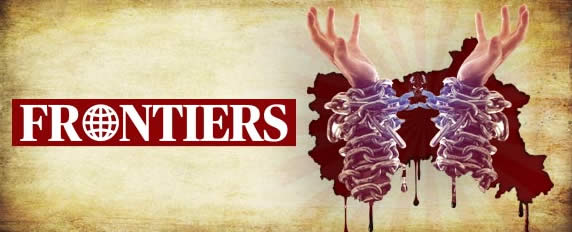
Portrait of Despair
More..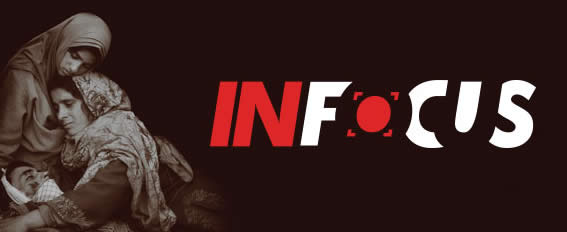
Colonising Kashmir
More..
Perils of Amarnath-Yatra
More..
Going to the Polls
More..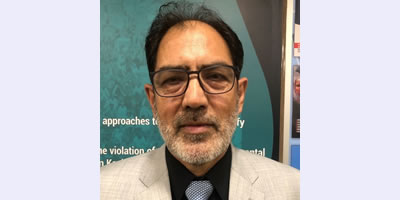
Indian Colonizing Education In India Occupied Kashmir
The continued conflict and turmoil in Jammu and Kashmir have had a devastating impact on almost every aspect of Kashmiri society.
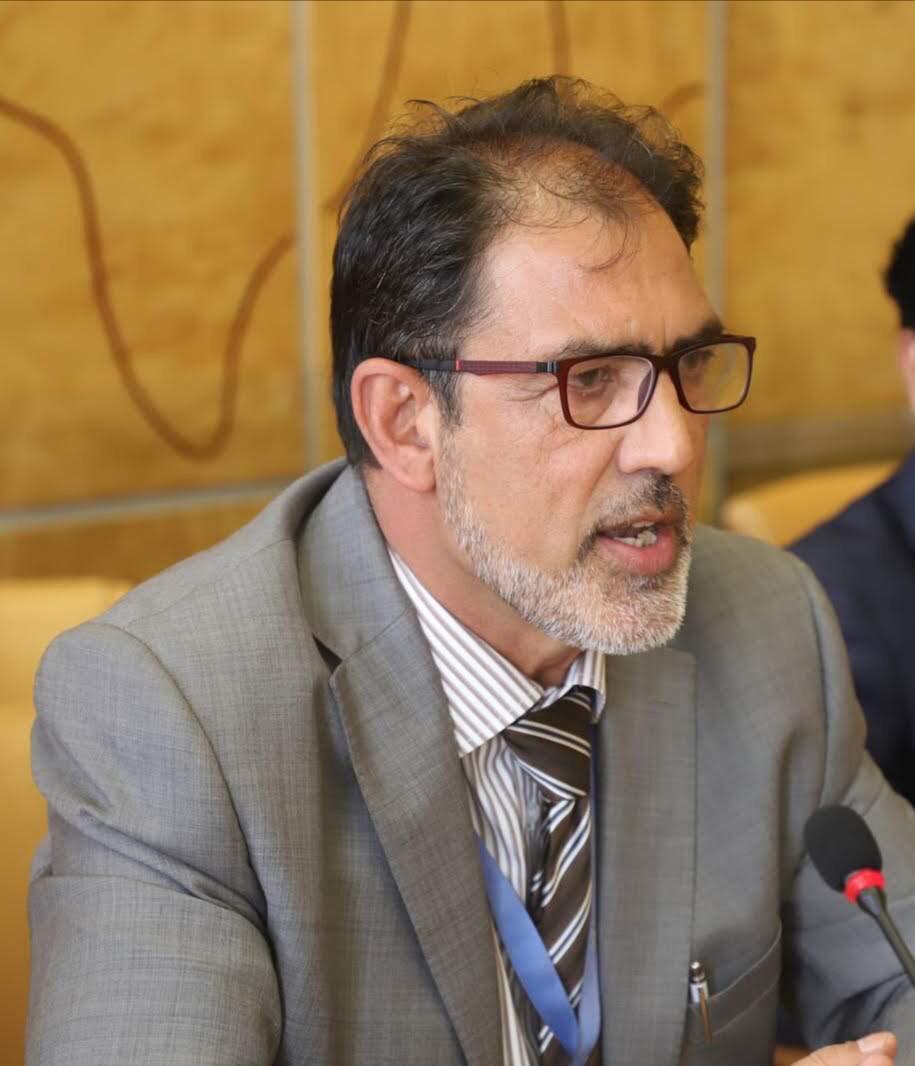
Foreign envoys guided trip to IoK: An attempt to keep facade of normalcy alive
After a yearlong hiatus the Indian government yet again arranged a trip of foreign envoys to the occupied territory of Jammu and Kashmir. The guided tour is widely viewed as an Indian ploy to keep the charade of normalcy alive to convince the world that all is well in Kashmir.
More..
The Future of Kashmir Struggle and Indian Obstinacy: Post abrogation article 370 and 35A
The beleaguered valley of Kashmir is not only an unfinished agenda of Indian Independence it has evolved itself into a gigantic conflict with regional peace and stability at stake.
More..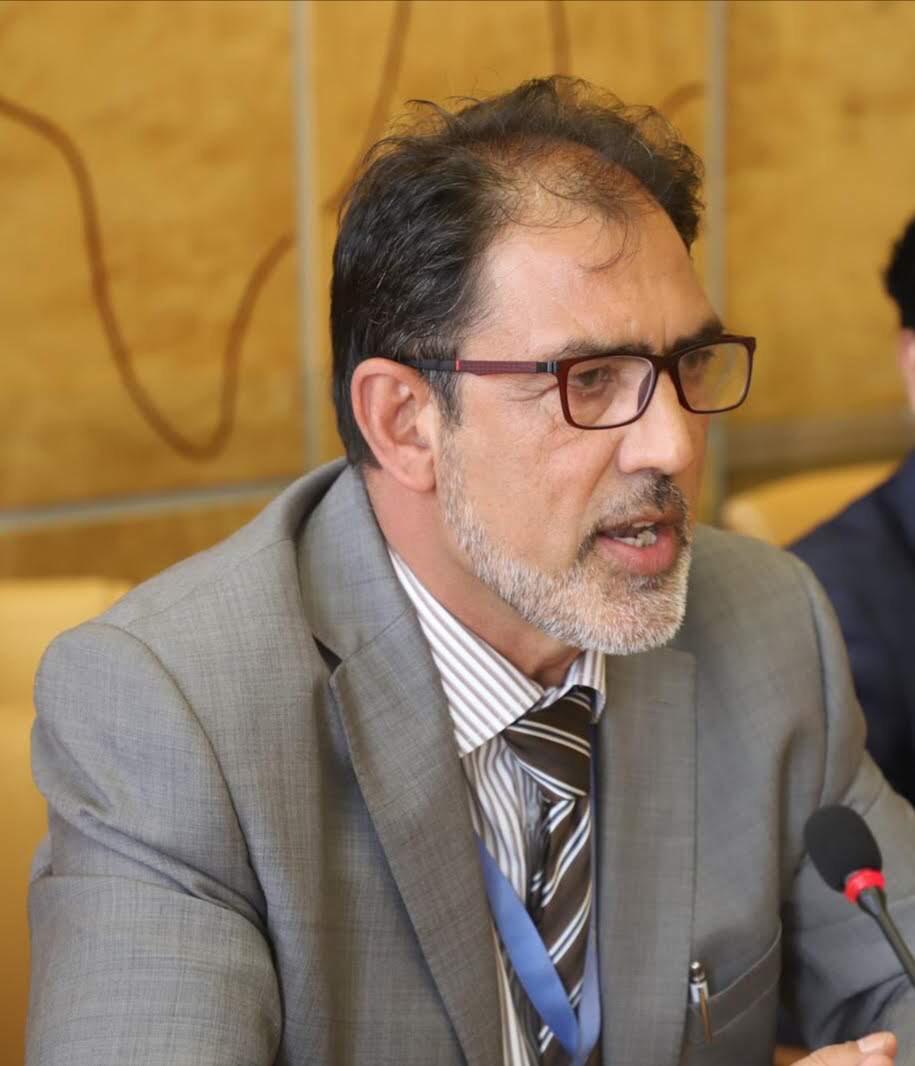
Kashmir Solidarity Walk
Brick by Brick the fascist regime of BJP led by Modi is hell-bent to annihilate altogether the existence of Kashmir. Decades have been passed and the true obscured Indian Hindu reality has now been exposed to the world.
More..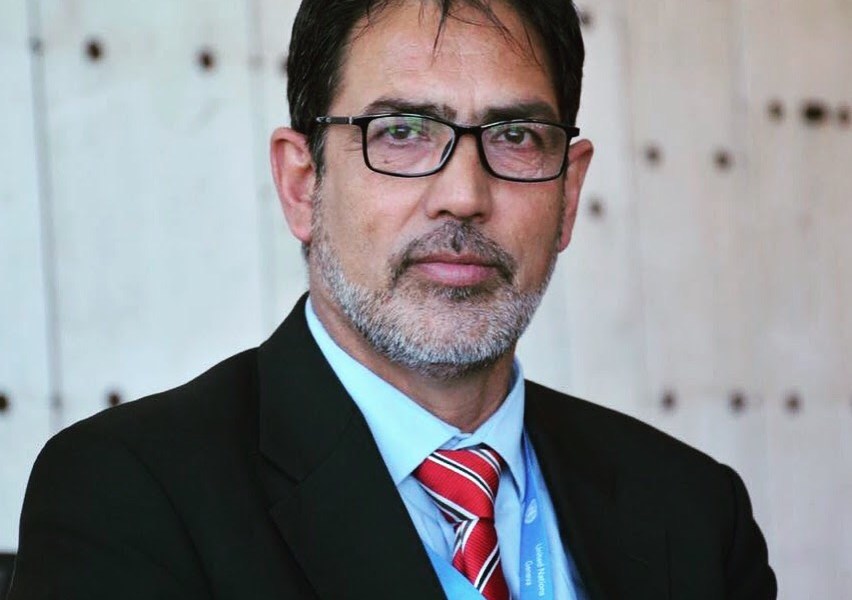
Colonization of Kashmir: A Holy Grail for the Indian state
Colonization of Kashmir has since long been a holy grail dream for the Indian establishment, mainstream political parties especially the radical right-wing parties’ leaders,
More..
Free at last ( Little Kashmiri Girl)
She opened her eyes for the first time and giggled as her mother gave her a sad smile. Little did she know that she was going to lead a difficult life. The life of a warrior. The life of a fighter.
More..
Aggressed, occupied and imprisoned people of Kashmir
People of Kashmir, in particular, Muslims of the Valley have been aggressed against, occupied and imprisoned by nearly 800000 Indian security forces since 5 August 2019.
More..
Global Affairs Magazine June 2019
More..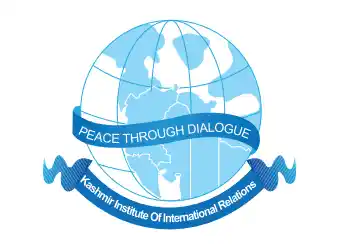
Saffronisation intriguing the Rise of Islamophobia
Saffronisation of India had brought nothing but religious disharmony, anti-secularist approaches, racism, gender discrimination, extremism and unequal distribution of rights among the people of India. Historically, Saffronisation or Hindutva was a harmless theology of Hindus, meant to be their way of life.
More..Related Blogs
- Nayeem Khan: A Brilliant Strategist of Resistance, Caged in Tihar
- Shabir Shah: Kashmir’s Nelson Mandela
- Kashmir’s Carceral Colonisation: When prisons become weapon of war
- Kashmir Black Day 2025: India’s Denial of Humanitarian Access Deepens Crisis
- Kashmir Black Day 2025: A Story of Broken Promises and Renewed Struggle
- Kashmir Black Day: A Continuing Struggle for Rights and Dignity
- Kashmir Black Day 2025 Erasing Memory, Silencing Voices
- The Unheard Symphony: October 27, 1947, and the Silence That Followed
- The Day Freedom Was Caged
- The Landing: A Black Day in Kashmir
- The Day Freedom Was Caged” October 27, 1947
- Echoes of Boots in the Valley of Saints: 27 October 1947
- When the Chinar Leaves Wept 27 October 1947
- The Books We Burn in Silence
- A Fish Between Two Crocodiles – How the BJP and Indian Army Turn Land into Power
- HE CAME BACK TO ME, BUT FOR HOW LONG?
- Ayaan: The Boy Who Carried a Family, and Became a Martyr
- Barbed to beauty: Tourism suffers Amid bolstered Amarnath Yatra
- A VOICE CAUGHT BETWEEN TRUTH AND TURMOIL
- Kashmir: Where heroes are mourned , not honored
- A Scholar’s Final Lesson
- From Conflict and Curfews in Occupied Kashmir to Topping India’s Medical Entrance Exam
- A Tale of Disappearance and Loss in IIOJK
- Silencing the Valley: India’s Demographic Coup in Occupied Kashmir
- Economic Promises, Ground Realities: The Kashmir Paradox
- AUGUST 5th 2019- THE START OF SETTLER COLONIALISM IN KASHMIR
- The Constitutional and Colonial Implications of August 5 in Kashmir
- Revoking Rights and Reigniting Resistance in Kashmir: A Constitutional Crisis
- Article On 5th August
- Kashmir Recolonized: The Settler Colonial Agenda Behind Article 370's Abrogation
- Authoritarianism of Illegitimate;Exploitation in the shadow of integration
- Elected but powerless: Farce of democracy in Kashmir
- Weaponizing Pahalgam Tragedy: India's Domestic and International Campaign Against Pakistan
- Trigger for war: India’s aggression against Pakistan
- Missed Opportunity: Nationalism, Kashmir, and Legacy of Conflict
- From Pahalgam to Provocation: India’s Escalation and Pakistan’s Response
- India’s Escalating Hostilities: Violations of International Law and Suppression in Kashmir
- Pakistan’s Strategic Response to India’s Provocations
- Pahalgam and Politics of Convenient Tragedy
- Fueling the Fire: Indian Media & the Phalgham Crisis
- Silent Killers: The Human and Ecological Cost of Landmines and Explosives in Kashmir
- Mirage of Peace in Kashmir
- Kashmir’s Silent Agony of Disappearances
- Erasing Resistance: India’s Legal and Demographic War on Kashmir’s Identity
- Coercion, Affidavits, and the Unraveling Myth of India Occupied Jammu Kashmir’s ‘Integration
- The Perils of Impunity in Indian-occupied Kashmir:
- Weaponizing Security: The Human Rights Crisis in Indian occupied Kashmir Under AFSPA and UAPA
- Kashmir’s human rights struggle gains unexpected spotlight at UNHRC amid global conflicts
- The Silent Suffering of Kashmiri Women in IOJK
- From Srinagar to Gaza: The Silent War Against Native Populations
- India's Violations of UN Resolutions and Global Inaction in IoK
- NC’s Familiar Flip-Flop: Omar Abdullah’s U-Turn on Kashmir
- Kashmir’s Autonomy Stripped: Strategic Responses and Challenges for Pakistan
- Pakistan’s Global Efforts for Kashmiri Self-Determination
- The Silent Trauma: Psychological Impact of Conflict in Jammu & Kashmir
- Justice Denied: Extrajudicial Killings & Enforced Disappearances in IoK
- MAKING EVERY DAY KASHMIR DAY: A NATIONAL RESPONSIBILITY
- Kashmir Solidarity day: A Struggle for Justice and Recognition
- Reflection on Woes, Oppression and Authoritarianism
- Kashmir Solidarity Day: A Call for Justice Amid India’s Non-Compliance
- Kashmir Solidarity Day: A Stand for Justice and Freedom
- Symbolism, Sentiment and Struggle for Self-determination
- Kashmir Solidarity Day: A Day of Unity and Support
- Kashmir Solidarity Day: A Global Call for Justice and Peace
- January 5: A Testament to Kashmir’s Unyielding Struggle for Self-Determination
- Kashmir’s Voice on January 5: A Pledge for Justice and Self-Determination
- Elections in J&K can’t resolve deeper structural and political grievances of people
- Unravelling the Impact: The Seizure of Properties and land grab in Indian-Occupied Kashmir
- Article: International Day for Elimination of Violence Against Women: A Focus on Indian occupied Kashmir
- Silence Must End: Justice and Accountability Need of Hour for Torture Victims
- Gen Syed Asim Munir’s vision for peace in SA and beyond
- A Call to Action: Confronting the Global Climate Crisis with Equity and Innovation
- JAMMU MASSACRE: A CHRONICLE OF NOVEMBER 6, 1947 AND A PERSISTENT QUEST FOR JUSTICE
- November 6: A Day of Remembrance for the Victims of the Jammu Massacre
- 1947 Jammu Massacre: A Forgotten Tragedy and the Call for Kashmiri Self-Determination
- October 27th: A Day of Lost Rights and Unfulfilled Promises
- October 27: Beginning of Kashmir’s Dark Era
- A Day of Mourning: Remembering Kashmir’s Lost Freedom
- Black Day: Kashmir's Fight for Self-Determination
- Kashmir’s Bleeding Wound: Remembering October27, 1947
- Kashmir Black Day: The symbol of unfilled promises and the struggle for justice
- 27th October: A Black Day in Kashmiri History
- Reassessing October 27th: A Call for Justice on Kashmir’s Black Day
- Is Freedom Merely an Illusion? Analyzing the Impact of India’s Colonial Legacy on Kashmir Since October 27, 1947
- Black Day of Kashmir: A Reflection on a Wounded History and a Striving Future
- India Wants Kashmir, Not Kashmiris: 27th October - The Black Day
- October 27: A Call for Justice and Recognition in Kashmir’s Ongoing Struggle
- 27 October 1947; The dawn of struggle for the people of Kashmir
- October 27, 1947: A legacy of betrayal, Occupation, and the denied quest for of Self-Determination in Kashmir.
- Echoes of suffering: Human Rights Violations in the wake of black day
- The Untold Pain of Kashmir: Revisiting October 1947
- Kashmir Black Day A Reflection on 27th October 1947
- KERALA STORY The Truth Behind BJP S CINEMA
- The Facade of Democracy: Reality of Elections in Indian-Occupied Jammu and Kashmir (IIOJK)
- The Inalienable Right to Self-Determination in Jammu and Kashmir
- Legal Implications of the Abrogation of Article 370 and 35A: A Review of Court Cases and Judgments
- Kashmir’s Security Quagmire; Post 5th August 2019
- Kashmir’s Unseen Battle: The Aftermath of Article 370 Abrogation
- IIOJK’S MENTAL HEALTH CRISIS - POST ARTICLE 370 ABROGATION
- Screenplay of Deceit; Unmasking Media and Bollywood’s Role in the distorting the narrative of Article 370
- India Faces Scrutiny Of Human Rights Situation At Geneva
- Youm-e-Takbeer: Nuclear Deterrence and Kashmir Conflict
- Indian Elections: Implications for Regional Stability
- Lok Sabha Elections: What Lies Ahead for Kashmir
- India's political landscape and BJP's campaign tactics
- Kashmiri rights activist: Vilified at home yet honored by the world
- Impact of protracted conflict on Kashmiri women
- Pakistan an uncompromising friend & sympathizer of Kashmir
- Modi’s Srinagar Visit: A Hollow Spectacle?
- Behind the scenes of the G20 meeting in Kashmir
- Article 370 Judgement: Another Step In The Wrong Direction
- End Culture Of Impunity: Only Way To End Extrajudicial Killings
- Human Rights: Accountability Mechanisms Need To Be Strengthened
- Scourge Of Sexual Violence In Conflicts: A Kashmiri Dilemma
- Illusion Of Normality: Unmasking Reality In Jammu And Kashmir
- International Women's Day in the Shadow of Conflict in Kashmir
- Kashmir Day and the Coincidence of Pakistan’s General Elections
- KASHMIR SOLIDARITY DAY: TRIBUTE TO FREEDOM STRUGGLE OF KASHMIRIS
- Sowing Seeds of Change: Kashmir's Path to Peace, Unity and Prosperity
- Kashmir Solidarity Day: A Call for International Recognition and Action
- YOUTH INITIATIVES RESONATING FOR KASHMIR SOLIDARITY
- Kashmir Solidarity Day: A Call for Youth Action
- 5 Feb Kashmir Solidarity Day: Call for Strengthening Pakistan's Kashmir Policy
- Amplifying the Voices of Half-Widows
- Kashmir Solidarity Day in the Shadow of Abrogation
- Kashmir Solidarity Day A Chronicle of Resilience and Struggle for Freedom Solidarity Day
- Empowered Voices: Kashmiri Women Pioneering Resistance and Resilience in IIOJK
- UAPA'S GRIP ON KASHMIR: SILENCING JOURNALISTS & ACTIVISTS
- STAGED ENCOUNTERS IN J&K SYSTEMIC IMPUNITY FOR INDIAN OCCUPATION FORCES
- PM Kakar's Strategic Discourse on Kashmir, Defense and Global Affairs
- UDHR at 75: Will Kashmir See a Dawn of Human Rights?
- International Human Rights Day: Kashmir, Palestine and Dilemma of UDHR Frameworks
- Kashmir Conflict: An inextricable link between human rights violations and genocide
- NAVIGATING HUMAN RIGHTS IN KASHMIR ON THE 75TH ANNIVERSARY OF UDHR
- Kashmir Conflict: Upholding Human Rights and Self-Determination on the 75th Anniversary of the UNDHR
- Border Dispute & the triangular conflict between China, India, Pakistan
- RECALLING THE NOVEMBER 6TH 1947
- Jammu Massacre: A sordid saga of painful memories, terror & trauma
- India’s Settler Colonialism in Kashmir
- Kashmir's Struggle for Self-Determination: Remembering October 27th
- The Instrument of Accession: A Contested History"
- Decoding Economic Depression in IOJK Post 2019: Causes, Consequences and Prospective Remedies
- THE PSYCHOLOGICAL IMPACT OF FORCED DISAPPEARIENCES ON KASHMIRI FAMILIES
- Kashmir’s quest for Independence, 27th October Perspective
- 27 Oct-In the history of Kashmir
- The Plight of Kashmir: From 1947 to the Present
- 27 OCT Black Day; Indian Unilateral Decisions to wreck Political, Religious and Cultural Heritage Of Kashmiris
- Kashmir's Self-Determination Struggle: A Chronicle of Resilience
- BLACK DAY OF KASHMIR
- Unplugging Kashmir files
- The Kashmir Conflict International Diplomacy's Blind Spot
- India’s Consistent Efforts to Weaponize Tourism in Jammu and Kashmir and Normalizing Foreign Investment in IIOJK
- FROM BULLETS TO CARBON FOOTPRINTS THE ECOLOGICAL CONSEQUENCES OF THE KASHMIR DISPUTE
- Navigating the Dual Challenge of Neelum Valley Conflict and Environment
- The Perils of Hate Islamophobia in India and Beyond
- BJP Junta’s control over Indian Media
- PSYCHOLOGICAL IMPACT OF ENFORCED DISAPPEARANCES OF KASHMIRI FAMILIES
- Militarization and Its impact on Glaciers in Jammu Kashmir
- A Threat of Nuclear Mushroom Looms Over South Asia Casting a Dark Shadow
- The Tragic Denial of Burial Rites in Indian-Occupied Kashmir
- WOMEN AS AN AGENT OF PEACE IN KASHMIR CONFLICT
- BATTLE OF PATIENCE AND RIGHTS: TORTURE CONTINUES IN THE KASHMIR VALLEY UNDER “UNLAWFUL” DRACONIAN LAWS (PSA, AFSPA, UAPA)
- Silenced Voices: India’s War on Words in IIOJK
- Four Year of annexation impacts of Kashmir and Kashmiris
- Social Media Censorship a Bluff Game in IIOJK
- The Environmental Impact of Militarization in Indian Occupied Jammu & Kashmir
- Unmasking Othering: Subaltern Muslims and the Stranglehold of Hindutva
- The G20 TWG Meeting in Kashmir The Camouflage of Oppression by the Normalcy Mantra
- Deciphering Pakistan's Foreign Policy Through Army Chief's Speech
- Comparing Diplomatic Behavior SCO Meeting Goa vs Trilateral Meeting Islamabad
- Climate Change and Food Security in South Asia: Challenges and Solutions
- Revival of Village Defense Committees in Indian Occupied Jammu & Kashmir
- Extra-Judicial Executions: India’s Dirtiest Warfare Tactics in Indian Administered Jammu and Kashmir
- Indian; Colonizing Education In India Occupied Kashmir
- Education: the hidden causality of Kashmir conflict
- Portrait of Despair
- Colonising Kashmir
- Perils of Amarnath-Yatra
- Going to the Polls
- Indian Colonizing Education In India Occupied Kashmir
- Foreign envoys guided trip to IoK: An attempt to keep facade of normalcy alive
- The Future of Kashmir Struggle and Indian Obstinacy: Post abrogation article 370 and 35A
- Kashmir Solidarity Walk
- Colonization of Kashmir: A Holy Grail for the Indian state
- Free at last ( Little Kashmiri Girl)
- Aggressed, occupied and imprisoned people of Kashmir
- Global Affairs Magazine June 2019
- Saffronisation intriguing the Rise of Islamophobia